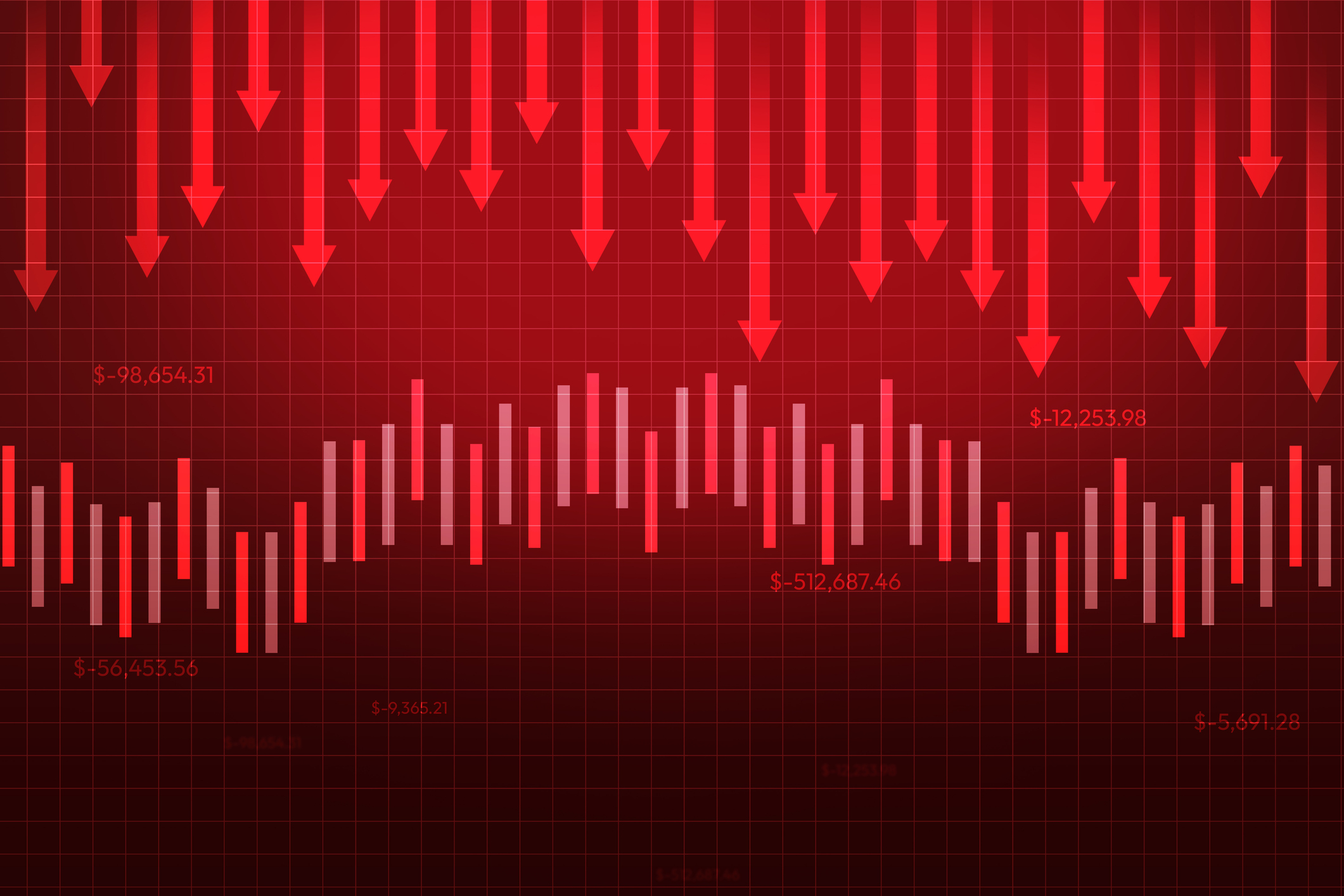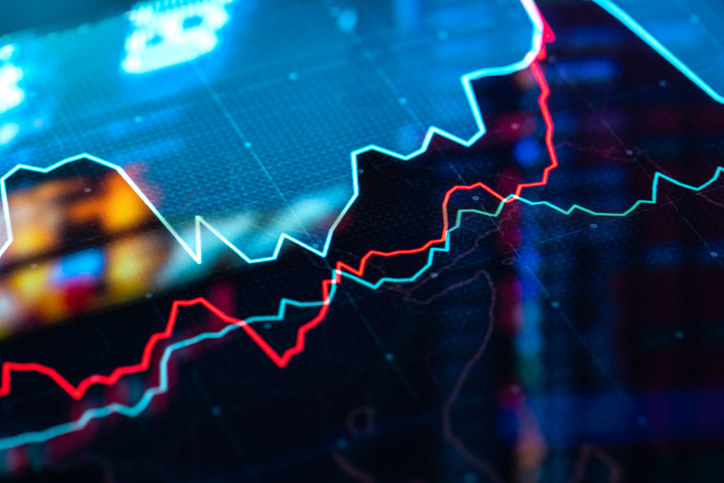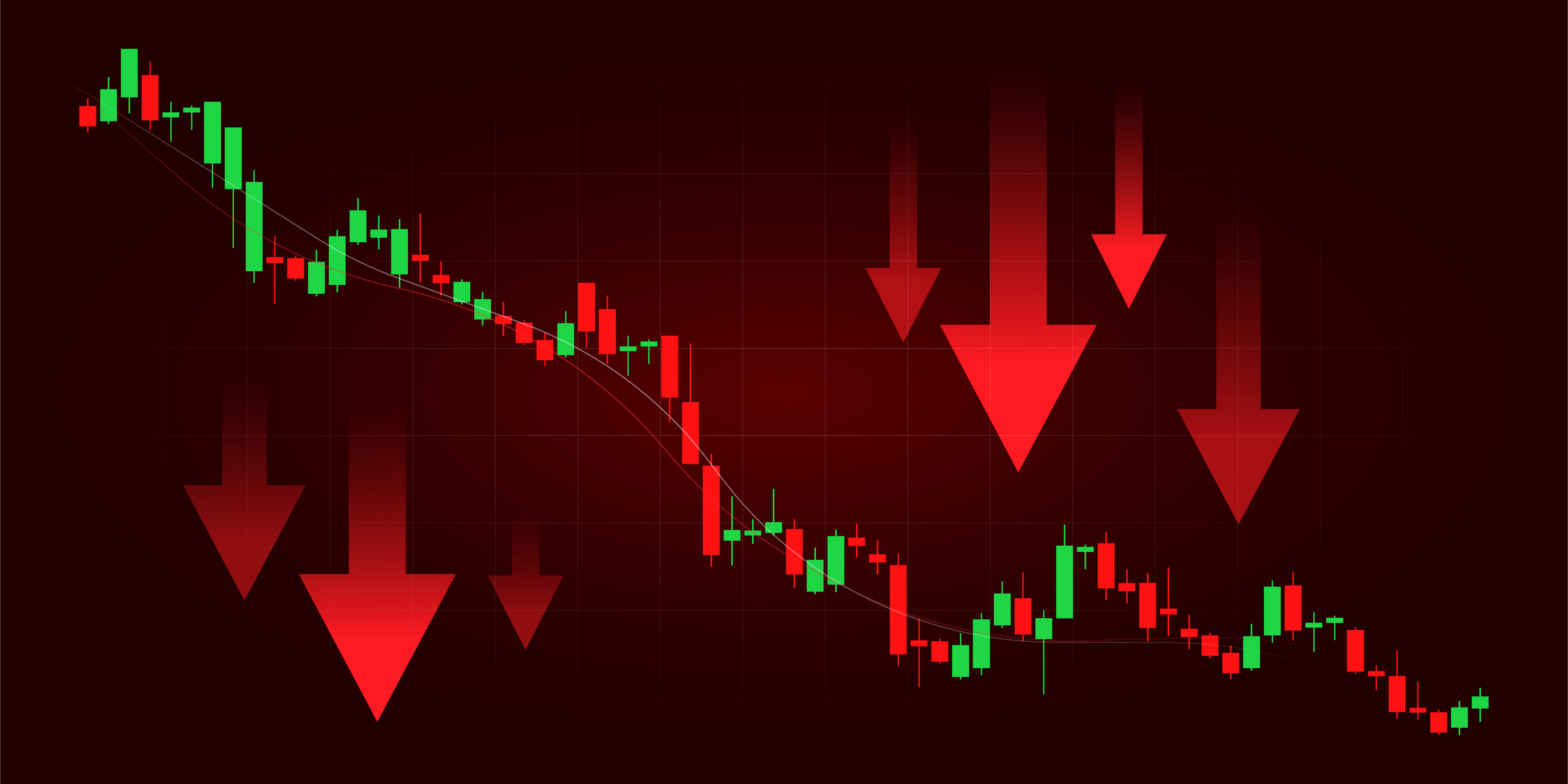Vanguard Health Care Fund Gets a New Boss
Don't expect major changes at the nation's largest health care fund.

Profit and prosper with the best of Kiplinger's advice on investing, taxes, retirement, personal finance and much more. Delivered daily. Enter your email in the box and click Sign Me Up.
You are now subscribed
Your newsletter sign-up was successful
Want to add more newsletters?

Delivered daily
Kiplinger Today
Profit and prosper with the best of Kiplinger's advice on investing, taxes, retirement, personal finance and much more delivered daily. Smart money moves start here.

Sent five days a week
Kiplinger A Step Ahead
Get practical help to make better financial decisions in your everyday life, from spending to savings on top deals.

Delivered daily
Kiplinger Closing Bell
Get today's biggest financial and investing headlines delivered to your inbox every day the U.S. stock market is open.

Sent twice a week
Kiplinger Adviser Intel
Financial pros across the country share best practices and fresh tactics to preserve and grow your wealth.

Delivered weekly
Kiplinger Tax Tips
Trim your federal and state tax bills with practical tax-planning and tax-cutting strategies.

Sent twice a week
Kiplinger Retirement Tips
Your twice-a-week guide to planning and enjoying a financially secure and richly rewarding retirement

Sent bimonthly.
Kiplinger Adviser Angle
Insights for advisers, wealth managers and other financial professionals.

Sent twice a week
Kiplinger Investing Weekly
Your twice-a-week roundup of promising stocks, funds, companies and industries you should consider, ones you should avoid, and why.

Sent weekly for six weeks
Kiplinger Invest for Retirement
Your step-by-step six-part series on how to invest for retirement, from devising a successful strategy to exactly which investments to choose.
When Ed Owens launched Vanguard Health Care Fund (symbol VGHCX), Ronald Reagan was president, the Soviet Union had just announced plans to boycott the summer Olympic Games in Los Angeles, and you had to go to a ticker tape to get real-time stock quotes. The world has changed considerably since 1984, but through it all Owens has steered his fund to a fabulous long-term record. In fact, Health Care’s 16% annualized return from its May 1984 inception through October 4 bests every other mutual fund and crushes Standard & Poor’s 500-stock index by an average of 5.7 percentage points per year.
Now, more change is afoot: At the end of 2012, Owens, 66, will retire from Wellington Management, the Boston-based company that runs Vanguard Health. Jean Hynes, 43, who has been a member of the $23.5 billion fund’s team for almost 20 years and associate manager since 2008, will take over as sole manager.
We recently chatted with Owens and Hynes about the state of health care, their approach to investing and what to expect with the changing of the guard. Here is an edited version of the conversation.
From just $107.88 $24.99 for Kiplinger Personal Finance
Become a smarter, better informed investor. Subscribe from just $107.88 $24.99, plus get up to 4 Special Issues

Sign up for Kiplinger’s Free Newsletters
Profit and prosper with the best of expert advice on investing, taxes, retirement, personal finance and more - straight to your e-mail.
Profit and prosper with the best of expert advice - straight to your e-mail.
Kiplinger's: How has the Affordable Care Act, the big reform law, changed the landscape for health care investors?
Owens: We haven’t made many changes to our investment process based on the Affordable Care Act. We are selectors of securities, and in most cases the ACA doesn’t affect the relative valuation of a company. It can affect the amount of concentration we want to make in one sector or another—it probably affects our call among health services, pharmaceuticals and medical products more than it affects other things. But in general, it’s business as usual for us. Our strategy continues to be to observe individual companies and their fundamentals over the next year or two.
How do you approach the $2.7 trillion health care sector and its many subcategories?
Owens: There’s a problem with definitions and dividing subsectors within health care. The distinction between biotech and pharmaceuticals, for instance, is quite artificial. We look at three big buckets—bio-pharma, medical products and devices, and health services. We are overweighted in managed care and health services and slightly underweighted in pharmaceuticals and biotech. But our portfolio is well diversified, so we don’t really diverge widely from our benchmark.
How do you come up with ideas and determine whether a stock is worth buying?
Owens: We’re value investors, so we tend to look for stocks that have lower price-earnings ratios. We are also fundamental investors, so we spend the great bulk of our time trying to determine the best new products in different categories. And in assessing companies, we try to find a balance between the value of existing products and new products that are in the pipeline. It’s a laborious but simple process.
Will the process change with the change in management?
Hynes: It should be a seamless transition. Ed and I have similar investment styles, and the members of the research team who have helped Ed since the late 1990s will still be in place. I share the same view of value as Ed does and also believe, as he does, that health care should be a low-turnover sector. The fundamentals of health care change less dramatically than other sectors of the market.
You’ve been adding biotech stocks. Will the fund’s exposure to biotech eventually eclipse that of traditional drug companies?
Owens: Biotech companies and pharmaceutical companies are one and the same. I see no distinction between Merck [a pharmaceutical firm] and Amgen [a biotechnology company]. When you look at how oncology is unfolding, advances are coming from both types of companies.
Many biotechnology companies are not yet profitable. As a value investor, how do you analyze them?
Hynes: We identify value not necessarily by focusing on near-term earnings, but by determining how much a company could possibly earn. Figuring out what a company could earn four or five years out—by evaluating new products and by estimating peak sales for products and how long it takes to reach peak sales—helps us determine a company’s value.
Does your fund currently own any unprofitable companies?
Owens: Yes. One company that is unprofitable now yet looks inexpensive to us is Ironwood Pharmaceuticals (IRWD). It has a product that was just approved for irritable bowel syndrome and chronic constipation. We think it will be a large seller over the next ten to 15 years and that the earnings Ironwood should generate five years out make the stock a great value today.
Merck, the fund’s biggest holding at last report, is decidedly profitable. What do you like about the company?
Hynes: We added it to the fund a few years ago when it was obvious to us that its new diabetes drug, Januvia, was performing much better than expected. It generates $6 billion in revenue a year, and its category of diabetes drug is still growing fast; Merck has about a 75% share of the market in that category. Like many of the big pharmaceutical companies, Merck has drugs going through patent expirations. In August, it lost the patent on one of its large-selling asthma drugs, Singulair. But Merck also has many important products in the late stage of drug trials [for more on the drug-testing process, see STOCK WATCH: 8 Stock Picks to Bet on Beating Cancer].
The fund has 22% of its assets in foreign stocks. Does location enter into your investment process?
Owens: We examine each company individually, but we want to run a diversified portfolio, so we’re constantly looking globally. We look at companies in Europe, Japan and emerging markets, as well as in the U.S.
Take us through a stock that you bought in the past year and how you analyzed it.
Hynes: I’ll talk about UCB, which stands for United Chemicals of Belgium. Like most of the companies we invest in, it is a global company. It used to be a chemical company, but those businesses were spun off over the past ten to 15 years. In 2004, UCB bought a U.K. company called Celltech and began its transformation into a pure biotech company. UCB went through a major patent expiration in 2009, for an epilepsy drug called Keppra. But because UCB is on the smaller side, the expiration affected the stock’s valuation more than some of the larger companies’ valuations have been affected by expiring patents. We’re attracted to two aspects of UCB’s business. The company has three existing drugs that are in the early stages of their life cycle and are generating growing sales: Cimzia, a drug for rheumatoid arthritis; Vimpat, another drug for epilepsy; and Neupro, a treatment for Parkinson’s disease. And UCB has a really interesting pipeline. It is developing an osteoporosis drug with Amgen. Many osteoporosis drugs prevent bone loss, but this would be only the second drug that would help build bone. That’s about to enter Phase Three clinical trials.
How do you determine when to sell a stock?
Owens: We are constantly refining our valuations of stocks. As they become more expensive, we begin to trim them. Fully exiting a position could take place over an extended period.
The fund’s long-term results are super, but it has lagged other health funds lately. You seem to lag in strong markets and do well in weak ones.
Owens: Yes, ours is a boring strategy. But losing less is a low-risk strategy for long-term success. We wish we had done better the past three years, but when small-company stocks are leading the health sector, it’s difficult for us to outperform because of the size of our fund.
Ed, what’s the most important lesson you’ve learned in the 28 years you’ve been running this fund?
Owens: When you hear people say that “it’s different this time,” it’s not. The process of valuing securities is the same as it was in the 1980s, and the process of researching new medicines and new therapeutic categories is the same as it was.
How do you feel about the future of the health sector?
Owens: The state of the art in drug development is progressing, and treatments are being developed for many new categories, such as orphan [rare] diseases, specific cancers and Alz-heimer’s disease. The end of innovation in health care is not in sight.
Kiplinger's Investing for Income will help you maximize your cash yield under any economic conditions. Subscribe now!
Profit and prosper with the best of Kiplinger's advice on investing, taxes, retirement, personal finance and much more. Delivered daily. Enter your email in the box and click Sign Me Up.

Nellie joined Kiplinger in August 2011 after a seven-year stint in Hong Kong. There, she worked for the Wall Street Journal Asia, where as lifestyle editor, she launched and edited Scene Asia, an online guide to food, wine, entertainment and the arts in Asia. Prior to that, she was an editor at Weekend Journal, the Friday lifestyle section of the Wall Street Journal Asia. Kiplinger isn't Nellie's first foray into personal finance: She has also worked at SmartMoney (rising from fact-checker to senior writer), and she was a senior editor at Money.
-
 How Much It Costs to Host a Super Bowl Party in 2026
How Much It Costs to Host a Super Bowl Party in 2026Hosting a Super Bowl party in 2026 could cost you. Here's a breakdown of food, drink and entertainment costs — plus ways to save.
-
 3 Reasons to Use a 5-Year CD As You Approach Retirement
3 Reasons to Use a 5-Year CD As You Approach RetirementA five-year CD can help you reach other milestones as you approach retirement.
-
 Your Adult Kids Are Doing Fine. Is It Time To Spend Some of Their Inheritance?
Your Adult Kids Are Doing Fine. Is It Time To Spend Some of Their Inheritance?If your kids are successful, do they need an inheritance? Ask yourself these four questions before passing down another dollar.
-
 Best Mutual Funds to Invest In for 2026
Best Mutual Funds to Invest In for 2026The best mutual funds will capitalize on new trends expected to emerge in the new year, all while offering low costs and solid management.
-
 Risk Is Off Again, Dow Falls 397 Points: Stock Market Today
Risk Is Off Again, Dow Falls 397 Points: Stock Market TodayMarket participants are weighing still-solid earnings against both expectations and an increasingly opaque economic picture.
-
 S&P 500 Sees New Highs on Shutdown Day: Stock Market Today
S&P 500 Sees New Highs on Shutdown Day: Stock Market TodayMost of its components were in the red, but the S&P 500 Index still managed to hit a new intraday all-time high.
-
 Stocks Can't Hold Meta, Microsoft Gains: Stock Market Today
Stocks Can't Hold Meta, Microsoft Gains: Stock Market TodayThe main indexes all opened higher Thursday on impressive Big Tech earnings, but momentum faded into the close.
-
 Stocks Are Up and Down on Fed Day: Stock Market Today
Stocks Are Up and Down on Fed Day: Stock Market TodayIn another sign of changing times, JPMorgan has partnered with Coinbase to enable cryptocurrency purchases with credit cards.
-
 Stock Market Today: Nasdaq Outperforms as Big Tech Rallies
Stock Market Today: Nasdaq Outperforms as Big Tech RalliesThe Dow Jones Industrial Average closed lower for a second day as Amgen and Merck fell.
-
 The Best Health Care Stocks to Buy
The Best Health Care Stocks to BuyThe best health care stocks offer investors a defensive hedge in an uncertain market. Here's how to find them.
-
 Stock Market Today: Markets Celebrate Trump's Tariff Détente
Stock Market Today: Markets Celebrate Trump's Tariff DétenteConsumer discretionary stocks led 10 of the 11 S&P 500 sector groups well into the green.